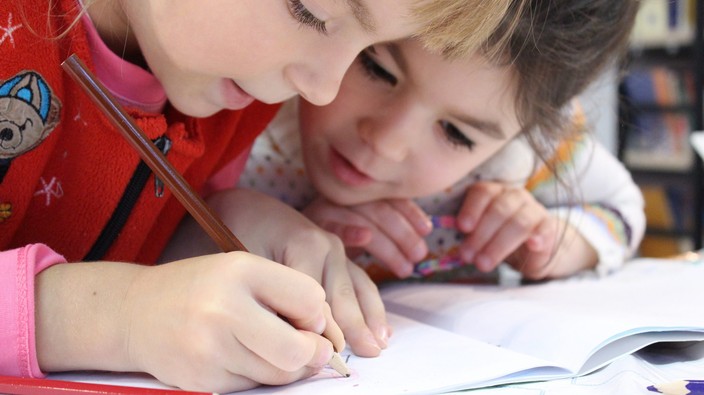children with developmental disorders are among those who have fallen through the cracks in ontario’s return to school plans, according to some early education specialists.four major teachers’ unions have filed a labour board complaint over the safety of school reopening plans. “no worker in the province of ontario should be expected to sacrifice their health and safety, especially when there are such obvious measures the government could be taking to reduce the risk and prevent potential tragedies,” said harvey bischof, president of the ontario secondary school teachers’ federation, in a statement.among those measures: a maximum class size of 15 to 20 students, an increased staff-to-student ratio, salary increases for teachers to keep up with the rate of inflation and more support for students with special education needs.in its supporting students with special education needs plan, the toronto district school board (tdsb) says its schools will work directly with families to address their concerns as students in kindergarten through grade 8 and in special education needs will return to school beginning sept. 15 for the normal five days a week or opt for virtual schooling.however, some parents say schools and teachers have been difficult to reach. lisa stromquist, associate director at children’s healthcare canada, says that this is in part because teachers also have been left in the dark. “i also know teachers who don’t know what’s happening either so they don’t have anything to share.”rachel martins, a mother and family engagement strategist with canchild, says she’s been stonewalled by her school. these reopening plans feel more like a “grand clinical trial, and you can’t encourage people to engage in complex science and then not offer an opportunity to have a conversation.”“what about those families who will have special needs, or the families who live with those who are immunocompromised? we just haven’t heard what the alternatives are.” she says.what little communication she has received, says martins, has been deeply patronizing.“just because you’re terrified or a giant fraidy cat, this is how you should feel about school is just a really terrible position to put parents in,” she says. “not even a remotely empowered stance to communicate over such a challenging subject.”although families have been given the option for virtual schooling, ripudaman minhas, a developmental pediatrician at st. michael’s hospital, says many of the families he works with feel as though the move to virtual schooling has left them behind.“when the pandemic first happened, it felt like the special education programming was really an afterthought. it was more ‘so let’s get kids connected to any virtual education they can’ and people with developmental issues got left behind,” says minhas.for children with special needs, virtual schooling poses additional hurdles since special education needs programs depend on face-to-face interaction. for example, for children with autism spectrum disorder diagnoses, the ability to socialize in a classroom is vital.“i would describe it as an opportunity to push and pull and play and learn” how they fit in, says minhas. “a lot of that really got, the word that comes to mind is ‘disintegrated,’ when the pandemic was called.”among the services that have been discontinued are extracurricular activities, personal support workers and respite care for those who need it. he says many of the families he works with now feel pressured to send their kids to school, whether it feels safe or not, to get some of the developmental support they need.dorjana vojvoda, pediatric patient navigator at st. michael’s hospital, says that for some families, educational issues have exacerbated the already heavy stressors surrounding the pandemic. parents, social workers, healthcare providers and teachers are likely to experience “even more burnout and vicarious trauma.”“school was not just school,” she says. “school was a way for parents to receive some relief and respite and also be able to go to work to maintain their families. i worry that parents’ mental health has declined as the access to support has been absent. this affects their ability to take care of themselves and children who have complex needs.”the issues affecting children with developmental issues have underpinnings in longstanding and long understood care gaps, says martins. “for instance, we have no data on federal data on children under the age of 15 with developmental disabilities since 2006. that’s a huge block of new information on how (we could) help support children since then!”“we could have been working on this a whole lot faster than we have been on a policy level,” she says. “we should kind of be embarrassed that we haven’t advanced a lot further.”even the curriculum, martins says, has been stagnant since the mid 2000s. “it’s constantly the last thought. if we stopped making cars in 2004 or 2006, we’d be upset that there are no new things to add to our car. why don’t we think about human beings and their opportunities to have education in the same way?”minhas says his practice is a loss of the life skills in children with extra developmental needs work in school to build: their ability to socialize, and fit in in a classroom setting. “we’re hoping,” he says “that they can be regained when we go back to a situation where the child can be around peers.”stromquist says that many of the plans laid out for back to school are “solid” in the event that “everything in your life runs tickety-boo,” but, she points out, “most people’s lives aren’t that cut and dry.”
this story was originally published on healthy debate. find the original here.don’t miss the latest on covid-19, reopening and life. subscribe to healthing’s daily newsletter coming out of covid.
